Tips to keep the Excretory System Healthy
Your excretory system is responsible for removing waste from your body. There is more than one organ involved in the excretory system and they are your kidneys, sweat glands, lungs and liver. Your kidneys are the primary organs. Getting the waste out of your body is very important because it is poisonous and if the waste builds up and is not taken care of, serious problems can occur. In general, excretion is the process of removing unwanted products from your body and eliminating them. Keeping your excretory system healthy is vital.
Below are given a few tips to maintain a healthy excretory system.
Water
To keep your excretory system healthy, you should drink a lot of water to stay well hydrated or else it can lead to constipation. Water is the most important thing to help your excretory system remain healthy. However, one should keep in mind that too much water though can actually hurt your excretory system. In order to keep your excretory system healthy, it is recommended that you drink around eight glasses of water every day.
Keep Away from Toxins
The excretory system is a way for humans to get rid of chemical wastes, which plays a role in maintaining homeostasis. Many of the chemicals we rid from our bodies can be toxic if they are not removed. Some of the wastes we produce in our cells are carbon dioxide, urea, and salts. You should keep an eye on what you consume as there are some foods that the body is unable to process. Alcohol, smoking and doing drugs can increase the level of toxins in your body and it becomes difficult to get rid of them. When it comes to the creams that we apply externally, they are absorbed by the body and enter the bloodstream so the liver has to process these chemicals. In order to decrease the level of pesticide that we consume, it is recommended that we choose organic and natural foods.
Exercising
One tends to forget the role of the skin when it comes to the excretory system. Sweat is a way through which the skin gets rid of the toxins inside the boy and sweating makes a person thirsty, making the role of water vital in flushing out toxins. Exercising results in a good supply of oxygenated blood inside the body and one should exercise for thirty to sixty minutes at least three to four times a week. Another good idea would be to try to go to a sauna for an hour a couple of times a week. This works well for people who are disabled and cannot work out as the sauna will help open up your sweat glands.
A Healthy Diet
Eat a proper, nutritious diet. Stay away from foods that contain pesticides, hormones and antibiotics. Also try to steer clear of fatty, oily foods. Your kidneys have to filter out all of these things, so try to eat more fruits, vegetables, whole grains, nuts, beans and soy.

 Subscribe Now
Subscribe Now


 Urinary Tract Infections are caused when the bladder is not completely emptied or something irritates the urinary tract. UTIs are the second most common type of infection in humans and The National Kidney & Urologic Diseases Information Clearinghouse (NKUDIC) reports that UTIs account for over 8 million doctor visits annually.
Urinary Tract Infections are caused when the bladder is not completely emptied or something irritates the urinary tract. UTIs are the second most common type of infection in humans and The National Kidney & Urologic Diseases Information Clearinghouse (NKUDIC) reports that UTIs account for over 8 million doctor visits annually.
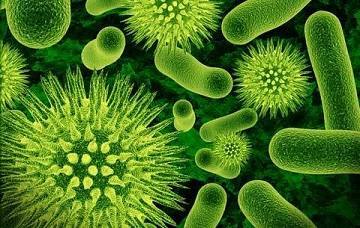 The reason why urinary infections occur in cats and dogs is because of E.coli which is a particular kind of bacteria and it stays near the urethra and enters it when the pet’s immunity is compromised and then reaches the urinary tract and the bladder. The problems that are caused because of this bacteria are kidney stones, stress, bladder abnormalities,
The reason why urinary infections occur in cats and dogs is because of E.coli which is a particular kind of bacteria and it stays near the urethra and enters it when the pet’s immunity is compromised and then reaches the urinary tract and the bladder. The problems that are caused because of this bacteria are kidney stones, stress, bladder abnormalities, 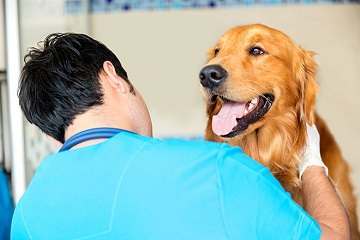 A lower urinary bladder infection can result in licking around the urinary opening, bad smelling or cloudy urine, and difficulty while urinating. Other symptoms include blood in the cat’s or dog’s urine, if there are accidents in the house or there is urine leakage. When it comes to cats, they will cry out or scream when they try to urinate. In cases of upper urinary tract infection, cats and dogs may show a lack of interest in eating, weight loss and vomiting. Serious symptoms can show lethargy, fever and abdomen tenderness. It is necessary that when such symptoms are present in your pet that you take them to a veterinary immediately. Even if there are no symptoms present, it is necessary to take your pet to a vet on a regular basis.
A lower urinary bladder infection can result in licking around the urinary opening, bad smelling or cloudy urine, and difficulty while urinating. Other symptoms include blood in the cat’s or dog’s urine, if there are accidents in the house or there is urine leakage. When it comes to cats, they will cry out or scream when they try to urinate. In cases of upper urinary tract infection, cats and dogs may show a lack of interest in eating, weight loss and vomiting. Serious symptoms can show lethargy, fever and abdomen tenderness. It is necessary that when such symptoms are present in your pet that you take them to a veterinary immediately. Even if there are no symptoms present, it is necessary to take your pet to a vet on a regular basis.
 Anything that obstructs the normal flow of urine from the kidneys and the bladder to the outside of the body can increase the risk of a UTI. Things like kidney stones, an enlarged prostate gland in men, urinary catheters, and genetic abnormalities in the urinary tract can interfere with urine flow. Women have more UTIs than men, and as women get older, the risk gets higher. There are a few different approaches to this as some believe that since women have a shorter urethra, bacteria can enter the urinary tract and travel up to the bladder more quickly. Others think that it is triggered by sexual intercourse or an increase of the amount of bacteria in the vagina. Since the opening of the urethra is very close to the vagina, bacteria have a short distance to travel. Pregnancy can also increase the risk, since all the extra weight puts pressure on the bladder and kidneys, making it easier for bacteria to set up shop. Last but not least, women who use diaphragms or spermicides for birth control are more likely to get a UTI.
Anything that obstructs the normal flow of urine from the kidneys and the bladder to the outside of the body can increase the risk of a UTI. Things like kidney stones, an enlarged prostate gland in men, urinary catheters, and genetic abnormalities in the urinary tract can interfere with urine flow. Women have more UTIs than men, and as women get older, the risk gets higher. There are a few different approaches to this as some believe that since women have a shorter urethra, bacteria can enter the urinary tract and travel up to the bladder more quickly. Others think that it is triggered by sexual intercourse or an increase of the amount of bacteria in the vagina. Since the opening of the urethra is very close to the vagina, bacteria have a short distance to travel. Pregnancy can also increase the risk, since all the extra weight puts pressure on the bladder and kidneys, making it easier for bacteria to set up shop. Last but not least, women who use diaphragms or spermicides for birth control are more likely to get a UTI. Good hygiene and simple self-help methods are critical for maintaining optimal urinary health. Both men and women should wash themselves regularly, and keep the vaginal or penile areas clean after urinating or after a bowel movement.
Good hygiene and simple self-help methods are critical for maintaining optimal urinary health. Both men and women should wash themselves regularly, and keep the vaginal or penile areas clean after urinating or after a bowel movement.
 Cystitis is a bacterial infection causes your bladder to become inflamed. It happens when bacteria enter your bladder through your urethra, the tube that carries urine out of your body. Cystitis is a common type of lower urinary tract infection.
Cystitis is a bacterial infection causes your bladder to become inflamed. It happens when bacteria enter your bladder through your urethra, the tube that carries urine out of your body. Cystitis is a common type of lower urinary tract infection.
 Stay hydrated by drinking plenty of fluids daily. Water can help flush bacteria from your system, prevent new infections and perhaps even flush the beginnings of an infection from your system.
Stay hydrated by drinking plenty of fluids daily. Water can help flush bacteria from your system, prevent new infections and perhaps even flush the beginnings of an infection from your system.
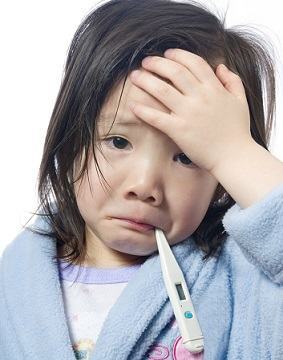
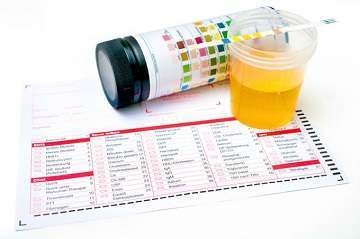 Another way is to dip test strips in the urine and these will show if a urine infection is present. However, these are usually not enough to be sure, unless the child has had infections before. The test strip results may be normal even if a child has an infection. Collecting clean urine for this test from young children can be difficult and a special bag may be used. Sometimes the urine is collected in other ways, such as using a catheter. If a urine infection is found, more tests will usually be performed to see if the bladder, ureters, urethra and kidneys are infected as well. Usually, the first test done will be an ultrasound.
Another way is to dip test strips in the urine and these will show if a urine infection is present. However, these are usually not enough to be sure, unless the child has had infections before. The test strip results may be normal even if a child has an infection. Collecting clean urine for this test from young children can be difficult and a special bag may be used. Sometimes the urine is collected in other ways, such as using a catheter. If a urine infection is found, more tests will usually be performed to see if the bladder, ureters, urethra and kidneys are infected as well. Usually, the first test done will be an ultrasound.
 Cystitis is a bacterial infection that causes your bladder to become inflamed. It happens when bacteria enter your bladder through your urethra, the tube that carries urine out of your body.
Cystitis is a bacterial infection that causes your bladder to become inflamed. It happens when bacteria enter your bladder through your urethra, the tube that carries urine out of your body.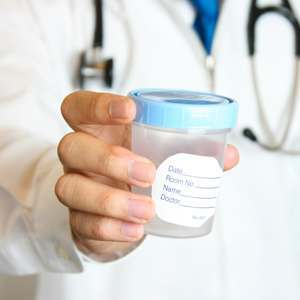 To find out if you have a UTI, your doctor will need to test a clean sample of your urine. The doctor or nurse will give you a clean plastic cup and a special wipe. Wash your hands before opening the cup. When you open the cup, don’t touch the inside of the lid or the inside of the cup. Put the cup in easy reach. Separate the labia, the outer lips of the vagina, with one hand and with your other hand, clean the genital area with the wipe. Wipe from front to back and do not touch or wipe the anus. While still holding the labia open, pass a little bit of urine into the toilet. Then, catch the rest in the cup. This is called a “clean-catch” sample. Let the rest of the urine fall regularly into the toilet.
To find out if you have a UTI, your doctor will need to test a clean sample of your urine. The doctor or nurse will give you a clean plastic cup and a special wipe. Wash your hands before opening the cup. When you open the cup, don’t touch the inside of the lid or the inside of the cup. Put the cup in easy reach. Separate the labia, the outer lips of the vagina, with one hand and with your other hand, clean the genital area with the wipe. Wipe from front to back and do not touch or wipe the anus. While still holding the labia open, pass a little bit of urine into the toilet. Then, catch the rest in the cup. This is called a “clean-catch” sample. Let the rest of the urine fall regularly into the toilet.